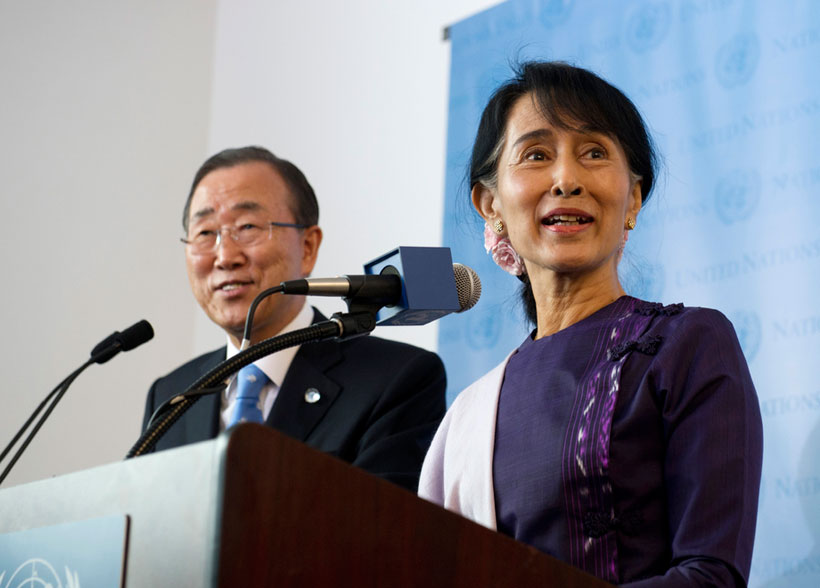In a joint press conference on Friday at the UN in New York City, Secretary-General Ban Ki-moon and Aung San Suu Kyi spoke after private talks focused on how Burma can move forward in democratic reforms.
 Suu Kyi said she did not recognize much of the UN complex since she worked there in the 1960s after graduating from Oxford University.
Suu Kyi said she did not recognize much of the UN complex since she worked there in the 1960s after graduating from Oxford University.
Asked about the round-the-clock media coverage of her US tour, and the possibility of sapping coverage from Burma’s President Thein Sein who will speak to the UN General Assembly on Thursday, she said: “I don’t think we should think about this in terms of personalities. I think we should think about it as a common goal. If we all want to achieve genuine democracy for Burma, we have to learn to work together and not think about our impact as personalities, either in our country or in the world at large.”
She said she could not discuss the details of her meeting with President Barrack Obama at the White House last week, but she considered it a good meeting.
“And I am happy that sanctions are now being lifted because as I have been saying – rather ad nauseum – it is time now that the Burmese people took responsibility for their democratization of the country. I am very, very appreciative of what the US Congress has done for many years to support our movement, but now we have to try to work on our own, of course, with the continuing support and help of friends," she said.
Regarding peace in Burma and elsewhere in the world, she said: “I think peace begins in the hearts of people. So, if we want peace, we’ve got to remove hatred. There can be no peace with hatred. Only without hatred can we achieve peace. So, if you want peace, you’ve got to try to do your best, in every way possible, to remove hatred from the hearts of human beings.
While in New York City, she also spoke to members of the Burmese community (see video) and to gatherings at Queen’s College and Columbia University.
She told members of the Burmese community: “Dissidents can’t be dissidents forever; we are dissidents because we don’t want to be dissidents.”
“I lived in Manhattan for more than three years, and I loved this city at a time when people thought it terrible,” she said of a period that began in the late 1960s.


